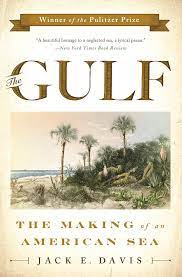Chapter 5 of Climate of Contempt opens with a discussion of the ubiquitous presence of petroleum products in modern society. Some readers find that discussion provocative because it asserts that (i) even though the oil industry has benefited from the glogal north’s colonial exploitation of the global south, and our reliance on fossil fuels feeds global warming and a plethora of other pollution problems, (ii) the main reason petroleum products permeate our lives is because consumers have found them useful.
The key point here is that acknowledging that second truth doesn’t undermine the case for the energy transition; it informs it. But in today’s hyper-polarized political environment it is difficult to hold these opposing cognitions in our minds simultaneously; instead, we are pushed to ignore or disbelieve one at the expense of the other.
Daniel Yergin’s The Prize: the Epic Quest for Oil, Money, & Power, the definitive history of the world oil industry, barely mentions the environmental tradeoffs associated with the modern petroleum economy, emphasizing instead that oil “makes possible where we live [and] how we live ….” Writing in the 1980s, Yergin characterizes environmentalism as a challenge to “the basic tenets of industrial society …”. For example:
Hydrocarbon Man shows little inclination to give up his cars, his suburban home, and what he takes to be not only the conveniences but the essentials of his way of life. The peoples of the developing world give no indication that they want to deny themselves the benefits of an oil-powered economy, whatever the environmental questions.[pp. 13-15]
Yergin’s 2011 follow up to The Prize, The Quest: Energy Security and the Remaking of the Modern World, is more accommodating to environmental concerns, particularly climate change. But that book was far less widely read, and it continues to sound a skeptical note about the prospect of society weaning itself from oil.
Contrast Yergin’s framing of these tradeoffs to the one offered by the environmental-social history of the Gulf of Mexico by Jack E. Davis, The Gulf: The Making of an American Sea. The book chronicles the history of that body of water, documenting in later chapters the manner in which oil and gas development has damaged the teeming fisheries and ecological biodiversity that Davis had richly described in earlier chapters. The Gulf’s natural protein bounty sustained indigenous tribes prior to arrival of the Spanish in the 16th century. In The Gulf the oil and gas development that The Prize extols as technological progress looks more like an environmental tragedy.
The obvious-but-inconvenient truth is that it is both things.
Davis credits the postwar boom with stimulating demand for cars and fossil fuels, using language might be read to invoke the group rivalries that characterize modern progressivism:
They were buying cars, big cars with big engines …. The decade’s drivers were more interested in horsepower and zero-to-sixty acceleration than fuel efficiency, and gas was cheap. For twenty cents a gallon, they were hauling all those boomer kids around, commuting to work from the suburbs (if the car owners were white), and steering blissfully toward summer vacations. (p. 281)
Yes, Jim Crow laws in the south and red-lining in the north kept black and other minority families out of suburban communities.[1] But no, 20 cent gas was not “cheap.” The price of gas in 2024 has averaged about $3.50/gallon. In 2024 dollars, the price in 1949 was about $3.25/gallon. Not a big difference.
As I have noted in previous blog posts, Davis’ Pulitzer Prize winning book is a worthwhile read, but it contains its fair share of gentle spin. He mistakenly calls the artificial reefs that form around Gulf oil platforms a “trope” (p. 302), and credits oil’s postwar rise to the fact that “war is a boon for those who provide the resources that run it” (p. 288). True, but that was hardly the driver of post-war growth in demand for oil.
The general point is that Davis has a very different view of industrial modernity than Yergin does. And it shows in both authors’ choice of language.
Davis charges European explorers and colonizers with introducing “a future of imprudent relationships with nature in place of [the] successful ones” that had been employed by indigenous populations. He writes that the 16th century indigenous tribes of Florida “harvested” local fauna to eat. But when the first Spanish conquistadors killed those same animals for food, they “ransacked” and “slaughtered” them. (p. 45). Gulf coast tribes, writes Davis:
were a people of physical and societal integrity and endowed with a traditional knowledge of the earth. Accepting nature as the sacred force of human life, society, and culture set up fateful distinctions between aborigine and European. [p. 38, 64]
As told by Davis, “imprudent” resource management replaced “successful” methods by way of the destruction of indigenous societies: first by the cruelty of Spanish conquistadors who introduced European diseases to the Americas and killed and enslaved Indians in their quest for precious metals and Christian converts; and later by the arrogance and duplicity of English and American governments that systematically pushed native tribes out of their homelands. Today’s consumptive capitalist economy is (to Davis) the end product of that replacement, one that has transformed the bayous, bays and barrier islands of the Gulf into fading industrial wastelands.[2]
The facts recounted by both Yergin and Davis are mostly accurate and correct. They are simply emphasizing different aspects of the same tradeoffs between the costs and benefits of fossil fuel-driven industrialization.
Davis is right when he chronicles the various ways oil and gas development have ravaged the Gulf and its coastline, destroying ecologically-valuable wetlands, facilitating the sinking and loss of coastline, and damaging biodiversity. And Yergin is right when he chronicles the various ways the petroleum economy has saved human lives: for example, by helping to facilitate the green revolution in agriculture in the 20th century, creating the surfactants in modern detergents and disease prevention methods, and making fresh fruits and vegetables more widely available by making inexpensive long-distance transport of goods cheaper.
At the same time, both authors make framing choices that include omissions and the language of spin. For example, neither The Prize nor The Quest really addresses the threats to human health from “forever chemicals” and other water pollution caused by the use of those fertilizers, pesticides and detergents that have saved so many lives. And while Yergin denies none of the climate impacts of burning fossil fuels for transportation, his treatment of those issues in The Quest seems relatively cursory. For his part, Davis devotes very little time and space to considering the benefits of oil and gas development, either to society at large or to Gulf communities.
So, our task as readers is to try to resist social pressure to turn away from the uncomfortable parts of the whole truth. Read Davis and Yergin, even if one or the other account irritates you.
So stay away from online sources that urge you to ignore or disbelieve part of the truth. Try to find the comprehensive, journalistic treatments of energy transition issues amid the online sea of “advertorials,” press releases, advocacy journalism, and misinformation. Go looking for “the other” side of an issue you care about. Be curious, not judgmental. Watch out for the language of spin. Savvy learners need to be multi-directional learners. – David Spence
——————–
[1] When I was seven years old my family lived for a year in a legally segregated neighborhood in Dallas, Texas. Most of my childhood was spent in a suburb of Rochester NY that practiced de facto segregation by way of zoning and realtor red-lining. Indeed, I knew children of both of the named parties in the famous Supreme Court racial zoning decision, Warth v. Seldin.
[2] At times Davis’ portrayal of native tribes veers into “noble savage” territory. The Spanish kept detailed records of their often cruel treatment of indigenous people, who they regarded as godless savages. So Davis may be reacting to that record. But other recent histories of these same interactions are more realistic and balanced, acknowledging the cruelty of the Spanish without omitting the material acquisitiveness, political savvy, and sometimes violently expansionist characteristics of native tribes. See e.g., Claudio Saunt, West of the Revolution: An Uncommon History of 1776 (Norton & Co., 2014); and Robert Goodwin, America: The Epic Story of Spanish North America, 1493-1898 (Bloomsbury, 2019).




